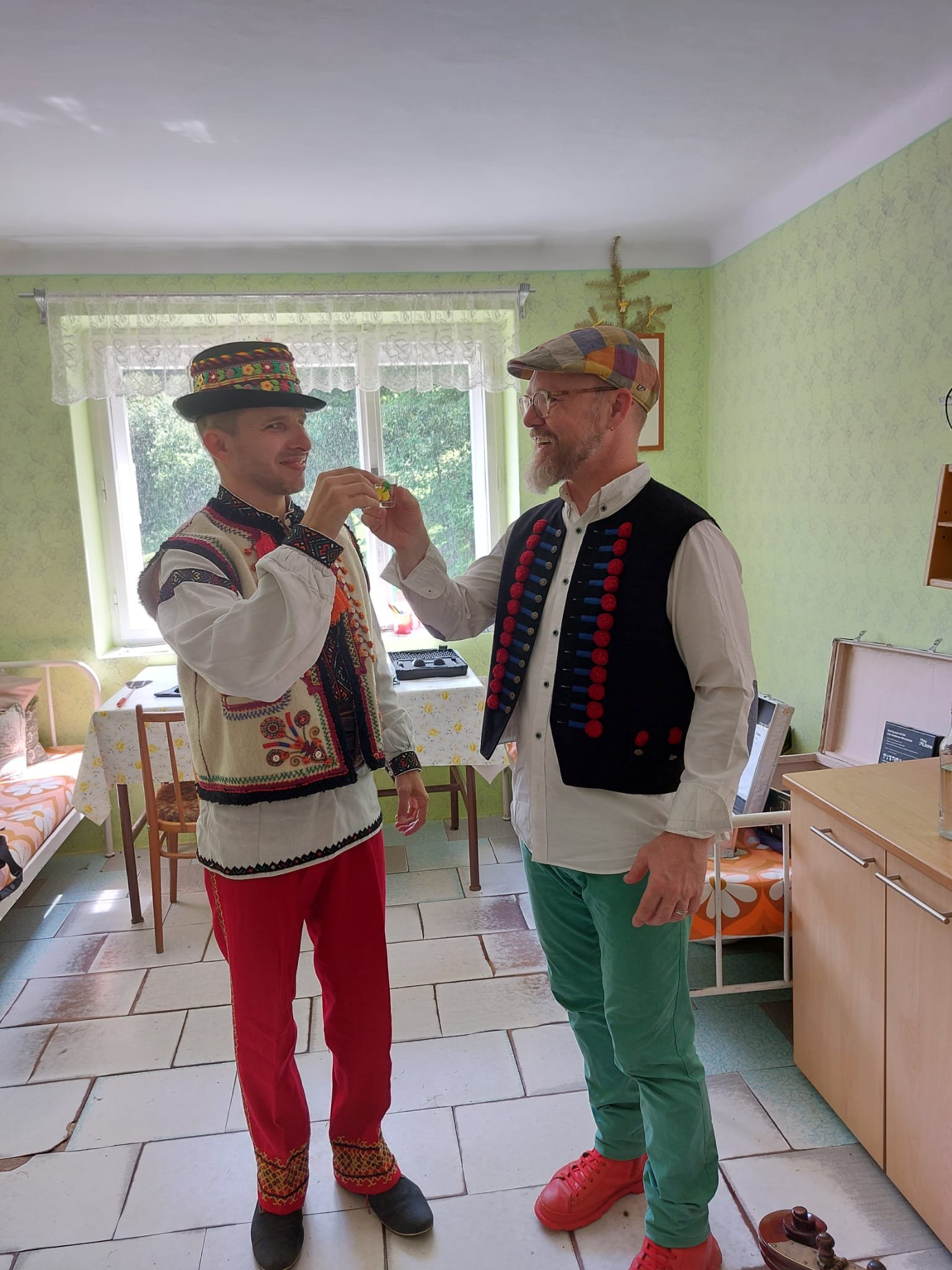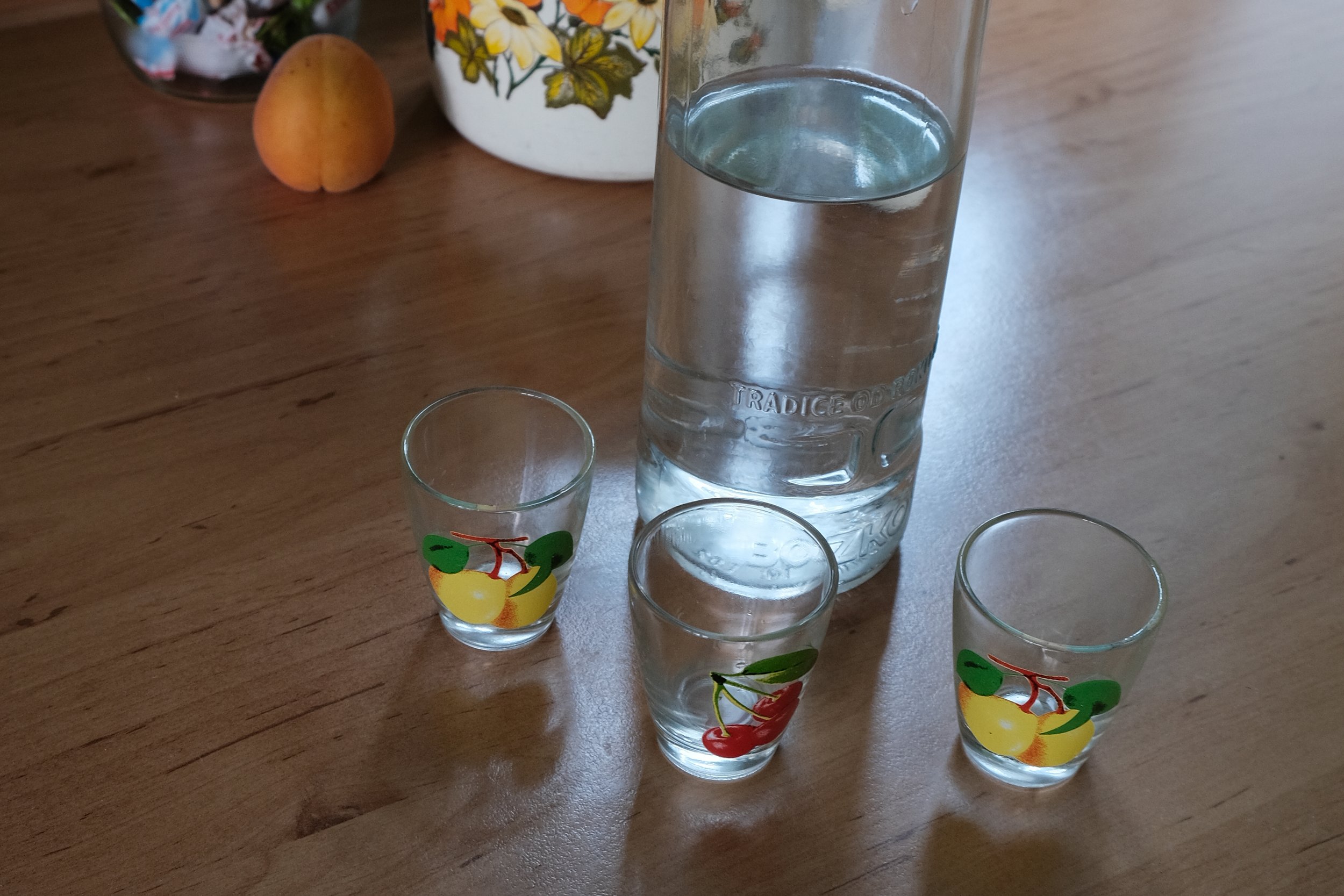Otherlands Collaboration #27
Date: June 26, 2022 • Location: Myslík, Czechia
On February 24, 2022, Russia invaded and started a war with Ukraine. Amazingly, this was after the US and allies alerted the international community of impending nefarious intentions, while Russia ordered their PR machine to communicate they had no plans to invade Ukraine. Warnings and denials aside, it’s still shocking that an industrialized nation like Russia would so blatantly and publicly attempt to take a neighbor by deadly force in this day and age. And, it’s hard to imagine the concern that much of eastern Europe must have felt while other parts of the world worried about the global consequences that could follow.
Two weeks earlier, I made my first contact with Marian Friedl, a musician I was hoping to meet in the Czech Republic while playing a June festival gig. Our correspondence was pretty normal at first, throwing ideas back and forth, sharing our traditions with each other. After Russia’s invasion, the tone shifted. I questioned whether or not I should be traveling nearer the region, and Marian, like so many others in the Ukrainian vicinity, worried for the safety of his family and home. But we carried on planning.
One day, Marian wrote with a beautiful suggestion. He knew of a Ukrainian collector and player of traditional flutes that lived in Prague named Nikolaj Tymchak—what about inviting him to collaborate with us? Marian is a player of traditional flutes from Valach culture in the Moravian-Silesian Beskids, a part of the Carpathian Mountains where the Czech Republic, Slovakia, and Poland meet. And Nikolaj is Hutsul, a people from another part of the Carpathians, now mostly within Ukraine. Recognizing Hutsuls as an ethnic group of a specific country can be difficult and complex since they have seen the shifting of political borders around them throughout history. I’m told that it’s more appropriate to say Hutsuls are part of a Ruthenian ethnic group.
Extend an invitation? Yes, please!
Nikolaj proposed playing “Arkan,” a Hutsul warrior song connected to outlaws, traditionally danced before fights with their bartka (an axe often associated with shepherds) around a fire. He even sent a video of his father dancing and singing for us to reference. “Arkan” also held the added significance for Nikolaj in that a friend of his—and fellow sopilka (flute) player named Mysko Adamchak—was currently fighting against the Russians and rescuing fellow Ukrainians. His friend was also playing “Arkan” on the battlefield to boost morale. We would play “Arkan” for him, and for Ukraine.
Marian and I, along with Czech bassist Martin Kocián, had the chance to work on the arrangement as a trio before recording day, but this video is the moment when we all play together for the first time—including my first time meeting Nikolaj and Czech percussionist Michal Wierzgoń who would play bass drum as traditionally heard in Hutsul music. As the scene unfolds at an old family shepherd’s cottage in the Beskydy Mountains, sheep are roaming and communicating behind us on the hillside. Nikolaj is wearing his traditional Hutsul clothing. Marian and Martin’s outfits represent their local Valach heritage. I was given a traditional vest to join in spirit. Our multicultural group basically satisfied local Hutsul instrumentation: voice, flute, dulcimer, fiddle, and drum.
The song begins with a call on a shepherd’s long horn from Marian (I wasn’t expecting this) and passes next to Nikolaj for an expressive solo statement of the main theme on sopilka. Nikolaj’s flute is an interesting mix of traditions—Hutsul (sound hole underneath) and Ukrainian (10 finger holes).
Marian, now at his dulcimer, sings the verses with the band swelling and weaving to create a musical bed.
Roughly translated:
Verse 1 - Musicians, play for me, I want to sing; for spring nights, for the eyes of my beloved; for a dove-grey cuckoo, and for this period of life I’m in
Verse 2 - I have a hole in my heart; play for me until morning; play the “Arkan” dance for me; play for my beloved; let this song fly to the Carpathians
And then the rhythm sets in. Six melodic parts unfold, bouncing back and forth between each other, speeding up and intensifying in energy until we’re about to lose control. Nikolaj and I make great eye contact throughout, united in melody and and harmony—when I’m not trying to pulse double-stops as the tradition wants. Martin’s bass alternates between plucking and bowing to elevate the arrangement while Marian’s dulcimer provides harmonic foundation. And Michal’s bass drum and tapping nail pushes and propels us to the end.
Honestly, the day is an absolute whirlwind. I had recorded another song in the morning, with a somewhat different group, of a different local tradition, but with the same gear. However, it was in a different location which required resetting everything. New friends tried reminding me to eat while I ran back and forth, but like at home, the suggestion doesn’t always work…at least I never sat down. Packing up after “Arkan,” I tried to express my sympathy to Nikolaj, for the difficulties that his family and friends were facing. But, upon realizing we didn’t have enough shared vocabulary for me to get the idea across, we walked to the kitchen of the shepherd’s cottage and shared a shot (or two) of local plum moonshine in solidarity.
As Marian gets ready to take Nikolaj back to the train station, I ask him to help me translate my previous sentiment. I learn Nikolaj has many Ukrainian musician friends, and he warmly extends an invitation for me to visit his country. I sincerely hope I can take him up on this…and that his friends, family, and country stay safe and can rebuild.
Let’s make music. Not war.
CREDITS
Song: Arkan (Traditional Hutsul)
Music Arranged by: Nikolaj, Marian, Martin, Michal, Casey
Sopilka: Nikolaj Tymchak
Voice/dulcimer/horn: Marian Friedl
Bass/audio: Martin Kocián
Drum/nail: Michal Wierzgoń
Fiddle/audio/video : Casey Driessen
Special Thanks
Michal Schmidt, Jiří Pospěch, Lukáš Mrkva, Základní umělecká škola Frenštát pod Radhoštěm


